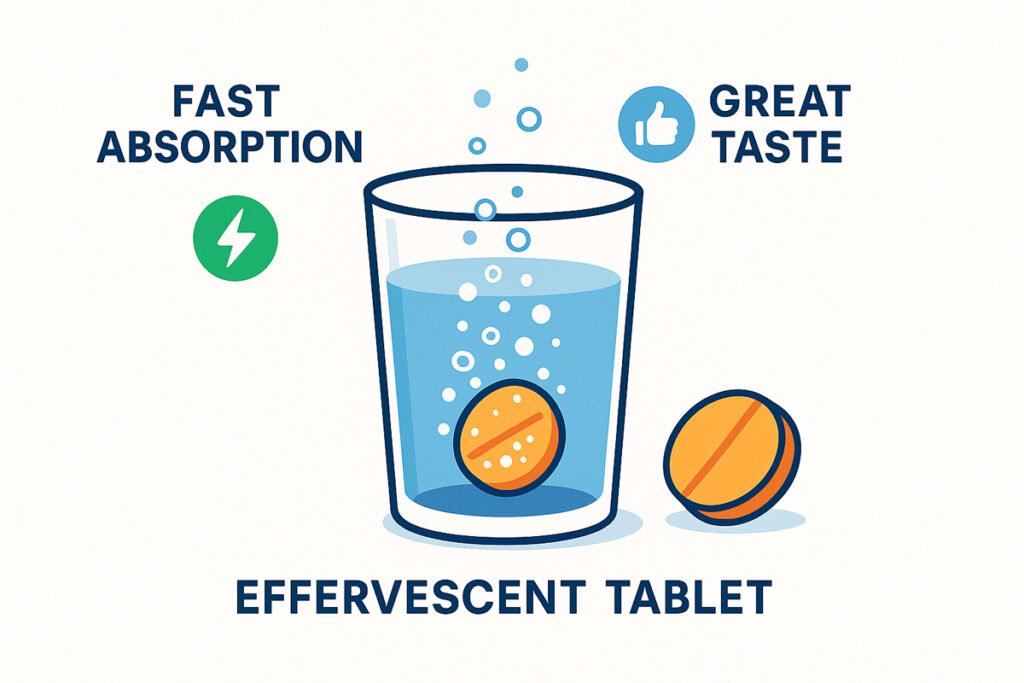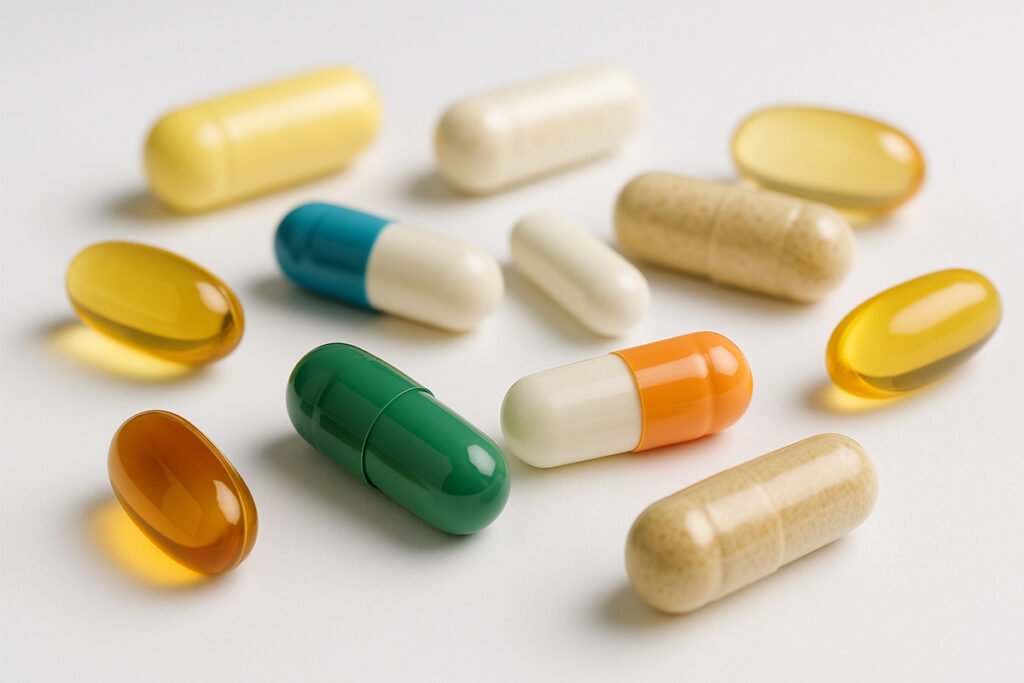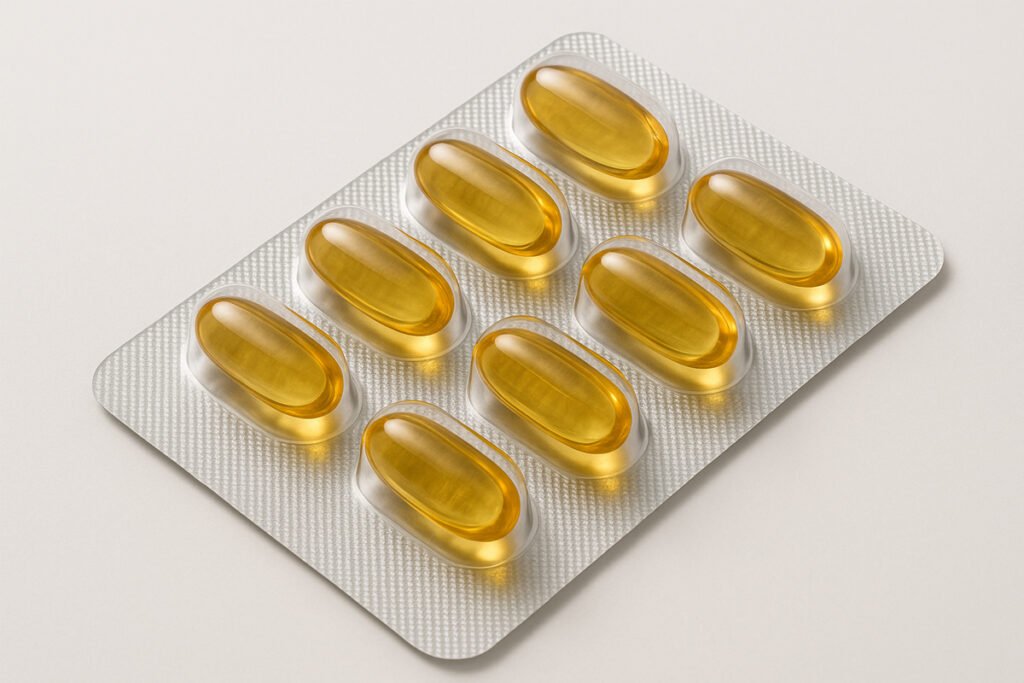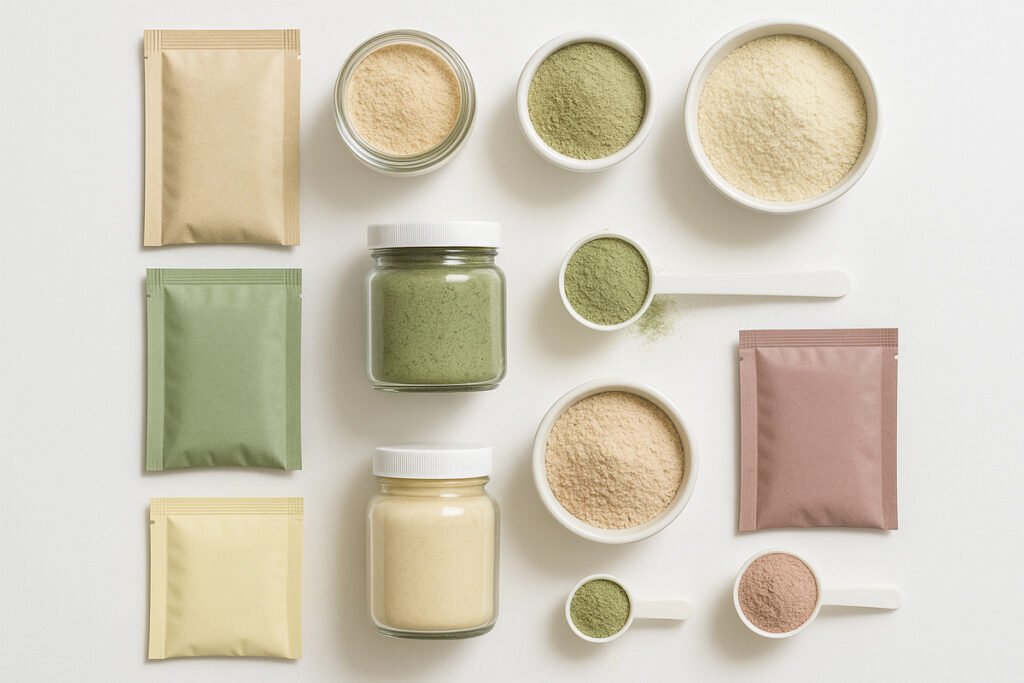What Are Tablets?
Tablets are solid oral dosage forms that deliver precise amounts of active ingredients in a compressed and compact form. Common in both the pharmaceutical and nutraceutical industries, tablets are designed for ease of use, portability, and long shelf life. They are typically made by compressing powdered or granulated substances, which may include active ingredients, binders, lubricants, and disintegrants.
Thanks to their cost-effectiveness and flexibility, tablets remain one of the most widely used forms of medication and dietary supplements worldwide.
Why Choose Tablets? Key Advantages
Tablets offer numerous benefits for both manufacturers and consumers:
- Precise Dosing: Each tablet contains a consistent dose of the active ingredient.
- Stability: Tablets tend to have longer shelf lives than liquids or semi-solids.
- Cost-Effectiveness: Lower production and shipping costs compared to other forms.
- Convenience: Easy to swallow, store, and transport.
- Scalability: Easily scalable for mass production in automated environments.
- Formulation Flexibility: Options for coated tablets, chewables, and multi-layer formulations.
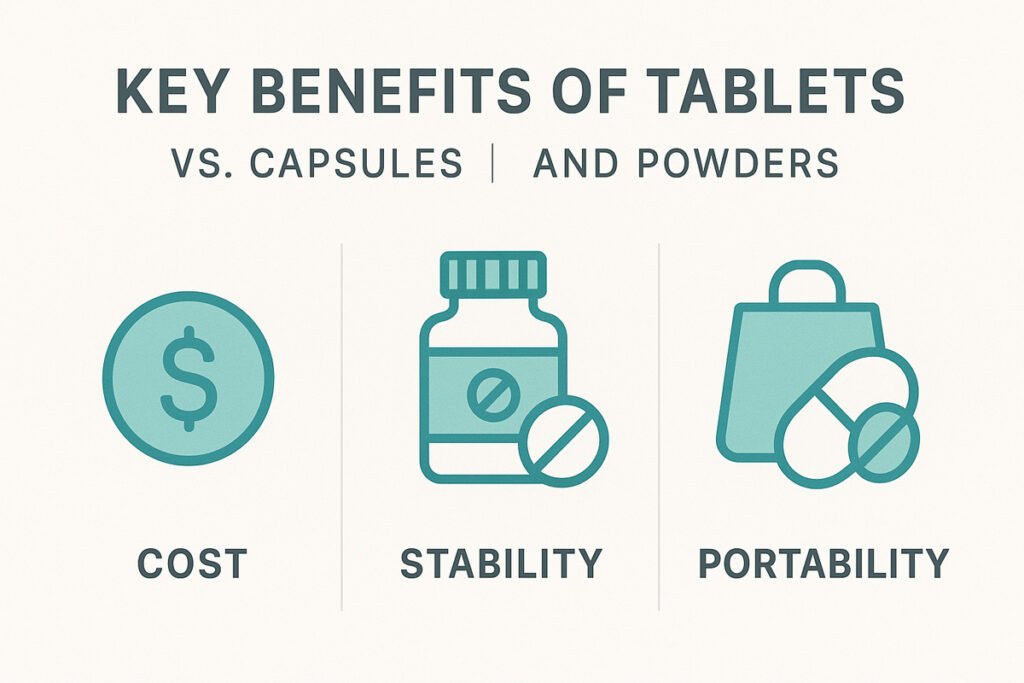
Different Types of Tablets
Understanding the types of tablets can help determine the best format for a specific product or market:
- Immediate-Release Tablets: Designed to dissolve quickly for fast absorption.
- Extended-Release Tablets: Release ingredients over a longer period.
- Chewable Tablets: Flavored for easy consumption, especially for children.
- Effervescent Tablets: Dissolve in water and are often used for vitamins.
- Orally Disintegrating Tablets (ODTs): Dissolve in the mouth without water.
- Sublingual Tablets: Placed under the tongue for fast absorption.
- Film-Coated Tablets: Coated for taste masking or delayed release.
Each tablet type serves different user needs, from ease of swallowing to controlled absorption rates.
Applications in the Nutraceutical Industry
Tablets are widely used to deliver a range of functional ingredients in dietary supplements. Common formulations include:
- Multivitamins and multiminerals
- Probiotics
- Botanical extracts (e.g., ginkgo biloba, turmeric)
- Amino acids and sports nutrition products
- Digestive enzymes
Their versatility allows for branding through shape, color, and engraving—helpful for distinguishing products in a competitive marketplace.
Tablets in Pharmaceuticals
In the pharmaceutical sector, tablets are the most prescribed and over-the-counter dosage form. Typical uses include:
- Pain relief (e.g., acetaminophen, ibuprofen)
- Chronic disease treatment (e.g., hypertension, diabetes)
- Antibiotics
- Antihistamines
- Antidepressants
Their portability and dosing accuracy make them ideal for long-term therapy and large-scale public health initiatives.ression, and inconsistent weight. These issues are typically addressed through pre-formulation testing, granulation, and using specialized tooling and equipment.
Key Factors in Tablet Manufacturing
Tablet manufacturing is a complex process that involves multiple stages and quality control measures. Important considerations include:
- Powder Flowability: Ensures uniform fill in the dies.
- Granulation Techniques: Wet or dry granulation improves compressibility.
- Compression Parameters: Proper force prevents capping or lamination.
- Disintegration and Dissolution Testing: Ensures bioavailability.
- Coating Options: For taste masking, color, or functional purposes.
- Packaging Materials: Should protect tablets from moisture, light, and oxygen.
- Regulatory Compliance: FDA, GMP, and ISO certifications are essential.
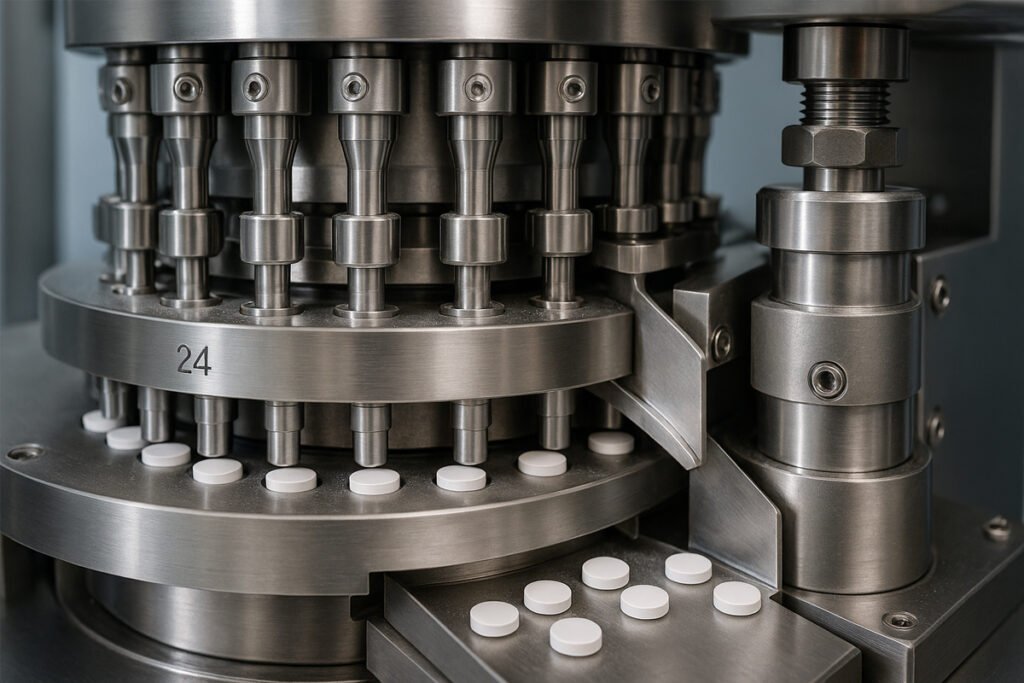
OEM and ODM Considerations
For businesses looking to outsource tablet production, selecting the right OEM/ODM partner is crucial. Key evaluation points include:
- Manufacturing certifications (GMP, ISO, FDA-registered)
- In-house R&D and formulation customization
- Production capacity and lead times
- Access to high-quality raw materials
- Packaging design and labeling support
- International regulatory support for export markets
- Transparent documentation and quality assurance systems
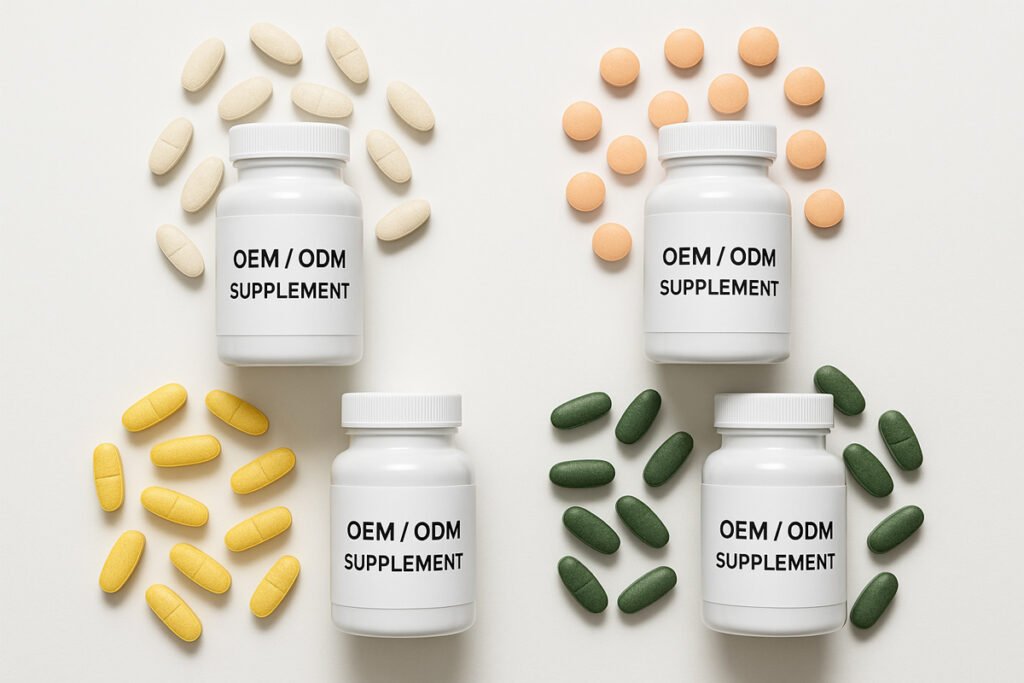
FAQs About Tablets
Q1: How long do tablets usually last?
A: Most tablets have a shelf life of 24 to 36 months if stored in a dry and cool environment.
Q2: Can tablets be customized in shape and color?
A: Yes. Tablets can be shaped and colored for brand differentiation and consumer appeal.
Q3: What’s the difference between tablets and capsules?
A: Tablets are compressed powders, while capsules are enclosed in gelatin or vegetarian shells. Tablets are typically more cost-efficient and stable.
Conclusion
Tablets remain a cornerstone of both the pharmaceutical and nutraceutical industries due to their practicality, scalability, and dosing precision. Whether you’re planning to launch a supplement brand or expand your pharmaceutical offerings, understanding the different types, benefits, and manufacturing considerations is key to success. Partnering with a reliable OEM or ODM manufacturer ensures your tablet products meet regulatory standards and market expectations.

